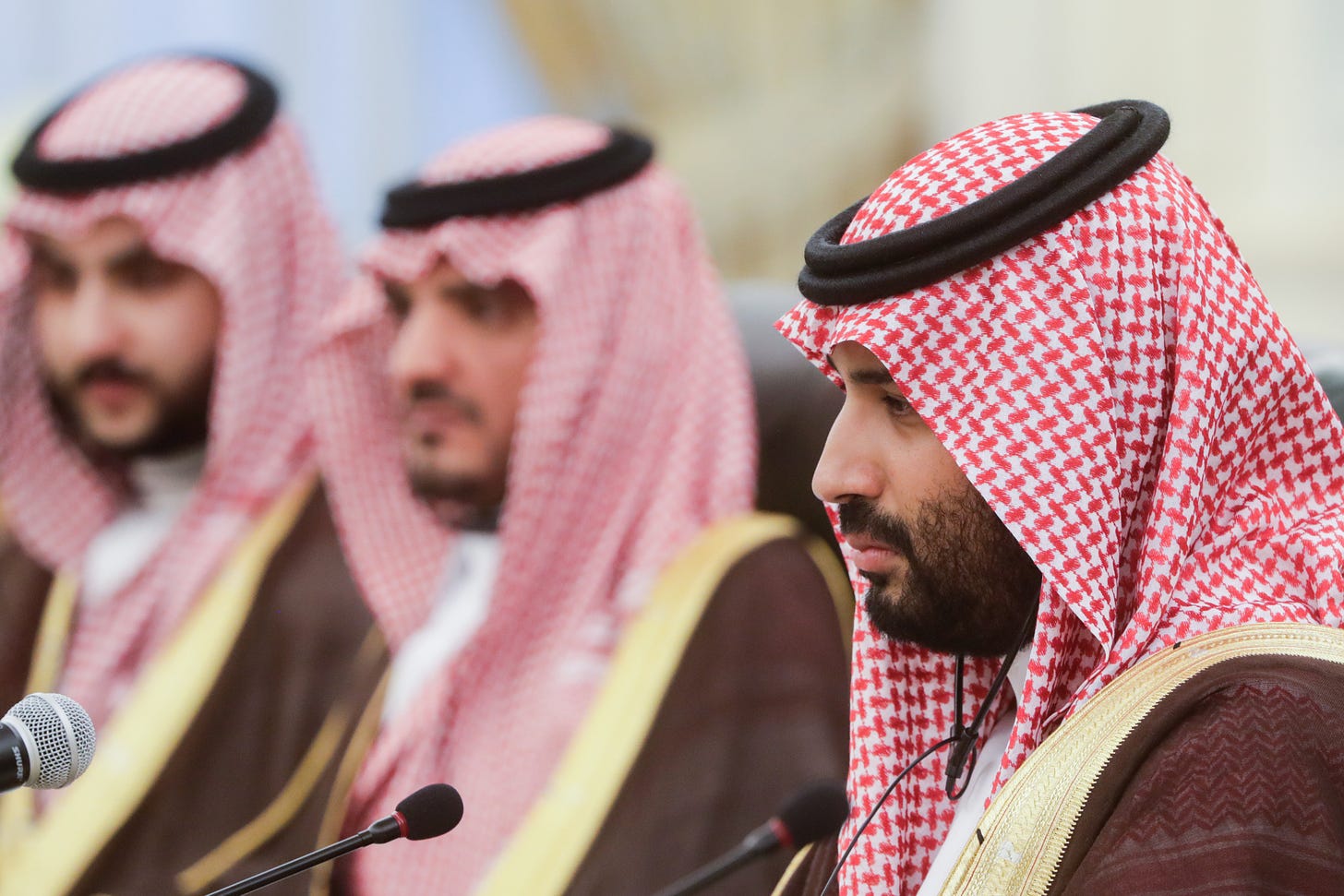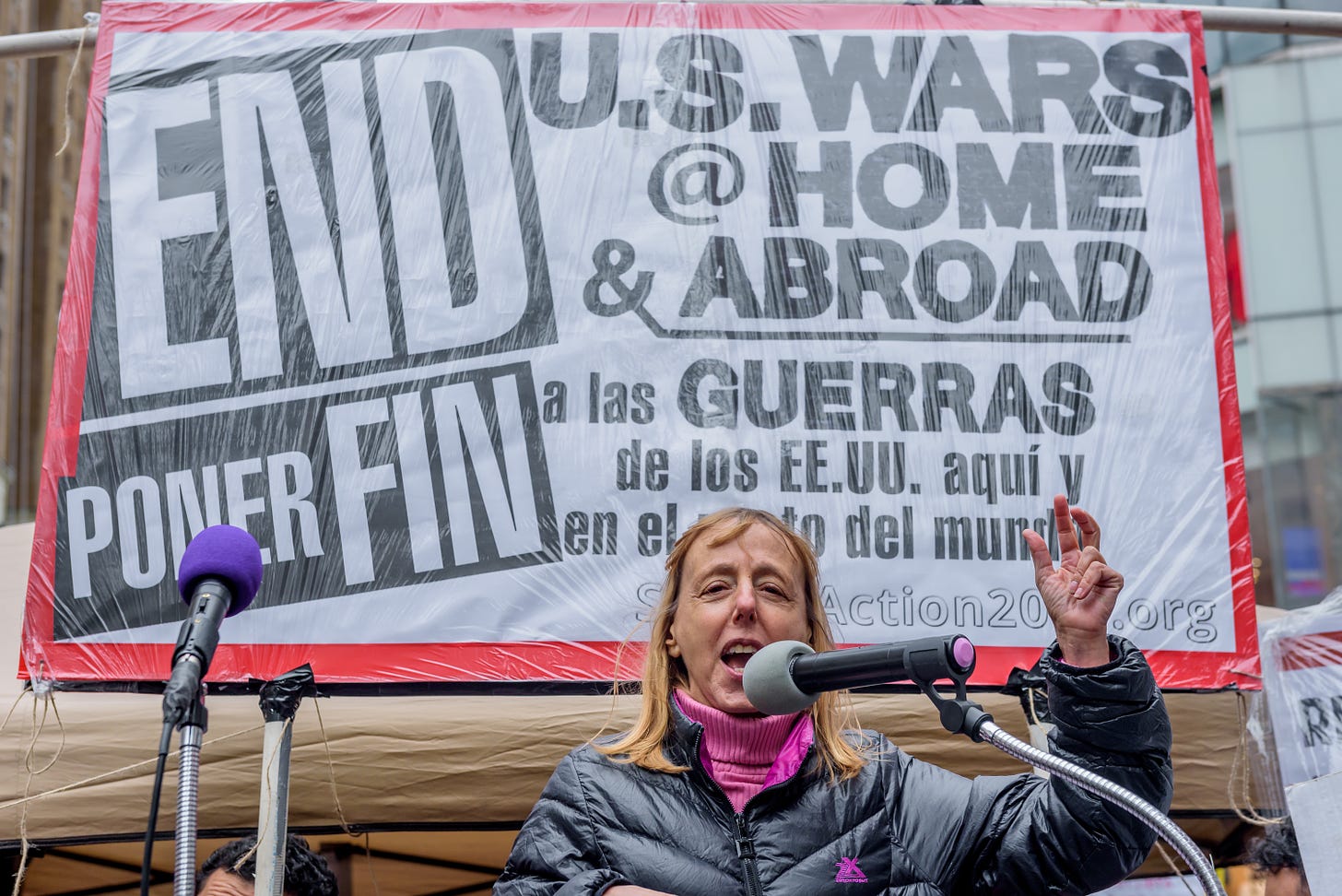Documents Show Saudi Lobbyists Monitored Activists At D.C. Summit

In March of 2016, about 250 activists gathered at a law school in Washington D.C. for a summit where speakers blasted the alliance between the U.S. and Saudi Arabia. One of the people watching the proceedings was a junior staffer from a D.C. lobbying firm who monitored the proceedings for the Saudi government.
The Uprising has obtained documents from the Podesta Group, a now-defunct lobbying and PR firm, that include a report that was compiled on the summit by that staffer.
That report, which we are not publishing to protect the anonymity of the source who provided the documents, was largely a dry summary of the conference. It included personal contact information for one of the speakers who, according to a writeup from Salon, included “a Who's Who of Saudi dissidents and specialists, along with representatives from the rights organizations Amnesty International, Human Rights Watch and Reprieve.”
The Saudi embassy did not immediately respond to a request for comment.
Saudi Arabia operates a robust influence network within the United States that has reportedly intensified in recent years amid the public outcry over the country’s war in Yemen and the October 2018 killing of Saudi journalist and Washington Post contributing columnist Jamal Khashoggi. The U.S. Director of National Intelligence released a report in February that accused Saudi Crown Prince Muhammad bin Salman of orchestrating the operation to “capture or kill” Khashoggi. Documents filed with the U.S. Department of Justice, in accordance with the Foreign Agents Registration Act, show there are at least twenty U.S.-based firms currently representing the Saudi government or affiliated entities.
The Podesta Group was one of Saudi Arabia’s representatives in the US from 2015 until 2017. According to FARA filings, the company represented the Saudi Royal Court and the state-run oil company and was paid at least $510,000 for its work during that period. The filings, which are public, say Podesta group was contracted for unspecified “public relations services.” They include details on informational materials Podesta Group distributed on behalf of the royal court, but no mention of monitoring American activists.
While Podesta Group is no longer working for the Saudis, the documents reviews by The Uprising shed light on the country’s ongoing influence operation. Podesta Group firm effectively shut down in 2017 as one of its founders, Tony Podesta, endured what the Wall Street Journal described as a “calamitous collapse” fueled by controversies, legal drama, and his own lavish spending. Podesta did not respond to a request for comment.
CODEPINK, a prominent American anti-war group, helped convene the event. Medea Benjamin, one of the group’s co-founders, was one of the speakers at the 2016 summit. She said the event, which was hosted in conjunction with multiple other groups including the liberal magazine The Nation, was the start of an ongoing CODEPINK campaign against the alliance between the U.S. and Saudi Arabia.
Over the phone, Benjamin told The Uprising that she’s not surprised to hear Saudi agents were monitoring the event. In fact, she claimed to have brought the possibility up in one of her speeches during the summit.
“I remember joking,” Benjamin recounted, “looking out at the audience and saying, ‘Well, we invited the Saudis to speak. They wouldn’t respond, but I’m sure there’s somebody here spying on their behalf.’”
Benjamin has written a book criticizing U.S. ties to Saudi Arabia. Human Rights Watch, which participated in the event, has linked Saudi Arabia to “unlawful attacks” and the deaths of thousands of civilians in its ongoing war against Houthi rebels in Yemen. In their most recent report on Saudi Arabia, Amnesty International said the country’s government has been “implicated” in “war crimes” in Yemen and “repression of the rights to freedom of expression, association and assembly” within its own borders.
Benjamin said Saudi monitoring of activists makes discourse around the country “hard.”
“I’ve had gatherings to talk about Saudi Arabia and the Saudis who are there don’t want to talk to the other Saudis. They are really, really so afraid that the other person is a spy,” she said, adding: “The world of Saudi Arabia is just swirling with government informants that make people so afraid, not only for what will happen to them, but of course, what will happen to their families back home.”
—
Want to read more stories like this one? Sign up for The Uprising, a new, unconventional, and fully independent morning politics newsletter.




The gaytheists target Saudi Arabia but cover up all the crimes of Morocco.